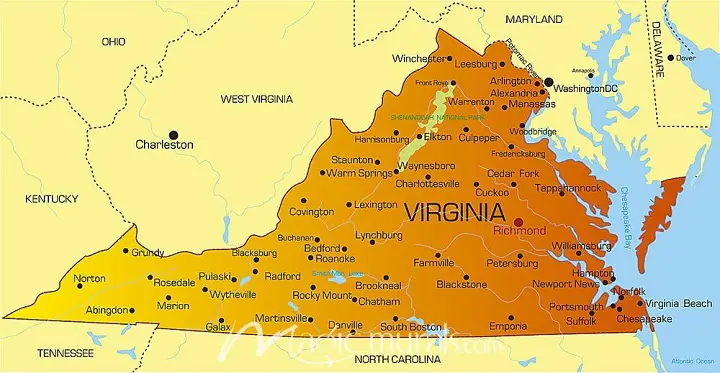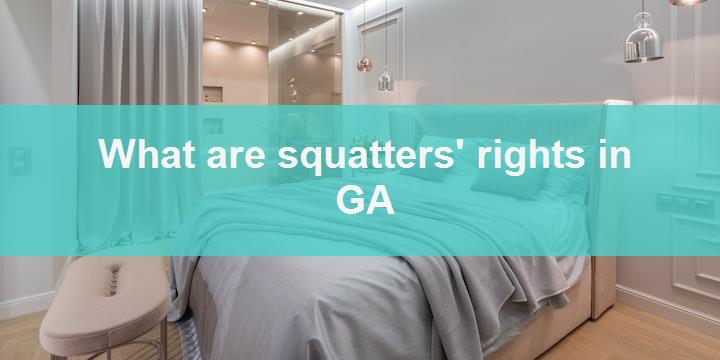Squatters, or individuals who occupy a property without legal ownership or permission, have been existing since time immemorial. Despite being considered illegal, squatters have established rights in some states of the US, including South Dakota. Understanding the law surrounding these rights is essential, both for property owners and squatters. In this article, we will explore what squatters rights are in South Dakota and how they work. We will delve into relevant laws and regulations and provide practical insights into the implications of squatting on real estate in South Dakota.
Squatting is defined as the act of residing in a property without the permission of its owner. In South Dakota, squatters may have the right to claim ownership of property if they can prove that they have continuously lived there for a certain period of time. This is known as adverse possession. However, for adverse possession to be valid, the squatter must have lived in the property for at least ten years and must have treated the property as their own, paying property taxes, making repairs, and maintaining the property. It is also important to note that squatting is illegal and can result in criminal charges if the rightful owner takes legal action.
What is the squatting/squatter?
A squatter is a person who occupies an abandoned, unoccupied or unused property without holding legal ownership or paying rent. The act of squatting involves occupying a building or land without the owner’s permission. Squatters may move into vacant homes or buildings, or they may set up makeshift shelters on unused land. Squatting commonly occurs in urban areas, and it is often associated with homelessness and poverty. In some cases, however, squatting may be a deliberate political act aimed at challenging the prevailing system of property ownership. Squatting is often illegal, and property owners may evict squatters using force or the legal system. Squatters’ rights vary from country to country, and in some cases, squatters may be able to claim legal ownership of a property if they occupy it for an extended period of time.
What is an example of a squatter?
A squatter is a person who occupies an abandoned or unoccupied building or land without the owner’s permission. They usually settle in derelict or neglected buildings or public lands, often without any legal rights or claim to the property. An example of a squatter could be a person who takes residence in a vacant house or apartment without having any proper lease agreement or ownership titles. They may live in the property for a long time and may even make alterations or developments without the owner’s knowledge or consent. In some cases, squatters could take over abandoned land and use it for farming, camping, or other purposes. However, squatting is often illegal and can result in eviction or arrest in some situations.
What is Adverse possession in South Dakota?
Adverse possession refers to the legal concept of acquiring ownership of a property without necessarily obtaining legal title. In South Dakota, adverse possession laws allow a person to claim ownership of a property if they have taken continuous, open and notorious possession of the property for a certain period of time without the owner’s permission. The possession must be exclusive and the person claiming ownership must have paid taxes on the property during the period of possession. The required period of possession is 10 years for non-agricultural and non-timberland property and 20 years for agricultural and timberland property. However, adverse possession claims can be disputed in court, and the legal process can be complex and expensive. It is important to seek legal advice before making an adverse possession claim in South Dakota.
Is it legal to squat in South Dakota?
It is not legal to squat in South Dakota. Squatting, or the act of occupying a property without the owner’s consent, is considered a criminal act in the state. The property owner has the right to file a complaint against the squatter, which could result in the squatter being served with an eviction notice, receiving a fine, or facing criminal charges. Even if the property is abandoned or unoccupied, potential squatters should remember that it is still illegal to occupy the property without the owner’s permission. It is advisable to seek legal means of acquiring a place to live rather than resorting to squatting, which can lead to negative legal consequences.
Can police remove squatters in South Dakota?
In South Dakota, police have the legal authority to remove squatters from a property only if the rightful owner has filed a trespassing complaint against them with the local authorities. Squatting is considered an unlawful act in the state, as it infringes upon property rights and can cause damage to the premises. If the squatters refuse to leave after being served with an eviction notice or oral request by the authorities, the police may use force to remove them from the property. However, the process usually involves a court order and can take weeks or even months to resolve. It is recommended that property owners seek legal counsel and follow due process to remove squatters to avoid any legal consequences.
How to evict squatter in South Dakota?
Evicting a squatter in South Dakota can be a challenging and time-consuming process. The first step is to serve the squatter with a written eviction notice. The notice should include the reason for the eviction, the date by which the squatter must leave the property, and a warning that legal action will be taken if they fail to comply. If the squatter refuses to leave, the property owner can file a lawsuit called an “unlawful detainer action” to remove the squatter from the property. A court hearing will be scheduled, and the property owner must provide evidence of their ownership and the squatter’s unauthorized occupation. If the court rules in favor of the property owner, a writ of restitution may be issued, giving the property owner the right to remove the squatter from the property with the help of law enforcement. It is important to follow the legal process and not take matters into your own hands, as this could result in criminal charges.
FAQ
Q: What are squatters rights in South Dakota?
A: Squatters rights, also known as adverse possession, refer to the legal principle that allows a person who has been occupying a property for a certain period of time without permission to take ownership of it. In South Dakota, there are specific conditions that must be met before someone can claim squatters rights.
Q: How long do I have to occupy a property before I can claim squatters rights in South Dakota?
A: In South Dakota, a person must occupy a property for a continuous period of 10 years without the owner’s permission before they can claim squatters rights.
Q: What other conditions must be met to claim squatters rights in South Dakota?
A: In addition to occupying the property for 10 years, the squatter must prove that they have been openly occupying the property, paying taxes on it, and maintaining it for the duration of the 10 years. Furthermore, the squatter must prove that they did not enter the property with an intent to harm the owner or commit a crime.
Q: Can the owner evict a squatter who has claimed squatters rights in South Dakota?
A: Once a squatter has successfully claimed squatters rights in South Dakota, they become the legal owner of the property, and the original owner cannot evict them. However, the original owner may be entitled to compensation.
Sources
South Dakota Codified Laws: Chapter 43-28 – Squatters’ Rights and Adverse Possession
South Dakota Department of Labor and Regulation – Landlord and Tenant Law
South Dakota Real Estate Commission – Squatters’ Rights
Squatter rights in other states




